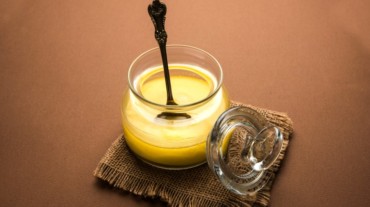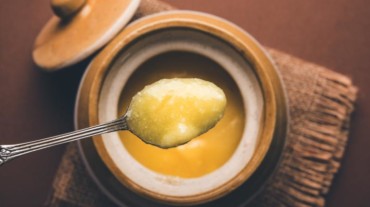
Whenever a desperate new mom asks me about weight loss, my heart goes out to her. Whenever I see a celebrity mother flaunt her sculpted postpartum body on Instagram, my heart goes out to her too! Why may you ask? Because I am sure that the celeb you see on your Instagram feeds might look perfect, but she’s had to bow down to extreme pressure from the media and public, to shed all that postpartum weight in no time!
Let’s get this straight: the weight we gain during pregnancy is not to match the roundness of our growing bellies. It is nature doing its job of storing fat to nourish the baby in the womb, and even after delivery, the body maintains these fat stores to nourish the mother and the child. I don’t think most people today realise how stored fat is valuable for our bodies, and not something to hate! Yes, it is our body’s defence mechanism to survive fatigue, famine, fire and floods.
And now let’s come to some of the most amazing food traditions that nourish the postpartum body. This conversation is incomplete without mentioning ghee: yes, it is critical for new mothers, and for good reason.
Ghee is a wonder food for weight loss
Several new moms steer clear of ghee, because they feel “it is fattening”. Let’s break it to you — it is actually quite the opposite. Ghee is like a soothing balm for a new mother’s body, and just like other foods, it must be consumed in moderation. So, don’t stop yourself from eating that ghee ka ladoo or all that you like with a layer of ghee on top. Let your body get what it deserves: a chance to heal and recover fully.
Here’s why this golden fat is sought after:
1. Butyric acid: Ghee increases the digestive power of your body. Your gut and liver are inflamed after delivery, and that’s where ghee helps! It heals the intestine and provides nourishment to the good bacteria in your gut, and at the same time, relieves constipation.

2. Fatty acids: The fat in ghee helps to shed stubborn fat from the belly region. It is the flab in our bellies, also called visceral fat, which is what puts a person at a higher risk of ‘lifestyle diseases’, such as diabetes, blood pressure and heart disease. The fatty acids in ghee lower the risk of these lifestyle diseases.
3. Excellent for brain health: Post delivery, fluctuating hormones and sleep deprivation can take a toll on our brain function. In fact, new nerve connections are formed in the brain after delivery, and it is the fat in ghee that provides protection against baby blues, mood swings and postpartum depression. New mothers must not exclude oil and ghee from their diet, even if they are desperate to lose pregnancy weight.
Also, listen:
4. Better absorption of vitamins: The fat in ghee helps to absorb vitamins from your food, and optimise vitamins for the healing of your uterus and better bone health.
5. Excellent carrier of nutrients: Ghee is usually given to new mothers in the form of laddoos. The ingredients in these ladoos are beneficial for the new mother, and the icing on the cake is ghee, which is used to bind these laddoos. And it’s not just about flavour — the ghee helps in the absorption of all the minerals in these laddoos, and transports these nutrients to all the cells in your body.
Select Topics of your interest and let us customize your feed.
PERSONALISE NOW6. Ghee helps to lubricate joints: Sitting for prolonged hours while breastfeeding can lead to joint aches. Also, the weight gain from pregnancy and changing hormone levels puts a strain on our joints, particularly our knees. It is ghee that helps in lubricating joints and prevents stiffness and pain.
Also, watch:
7. Improves cholesterol and blood sugar: Ghee helps in reducing bad cholesterol in your body, and slows down the absorption of glucose from your food, which means you won’t have to suffer from blood sugar spikes.
A word of caution here: just because ghee is amazing for weight loss does not mean we eat ghee alone. That is the beauty of a healthy diet, everything needs to be in balance. Make sure to get your share of veggies to load up on fibre — yes, it will help to relieve constipation that’s common post delivery. Oh and yes, don’t forget to add a spoonful of ghee to your breakfast, lunch and dinner.